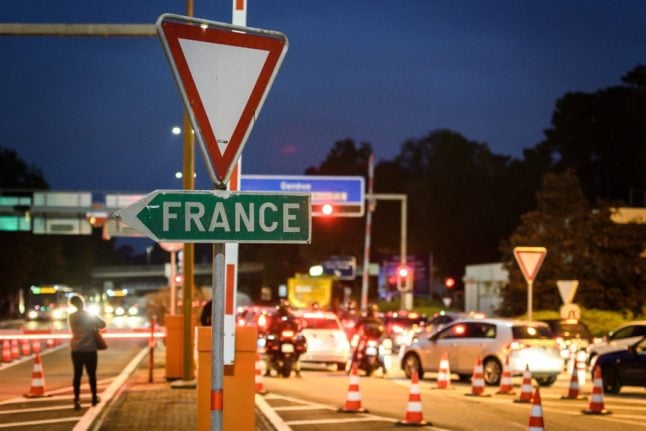Swiss and French media reported on Thursday that over the weekend of November 14th, the motorised gendarmerie unit from Saint-Julien-en-Genevois, a French town adjacent to Geneva, carried out controls at two customs points to check whether travellers had the permission form needed to leave the home (attestation de déplacement dérogatoire) required in France.
Controls of 150 cars and cross-border Geneva buses were made at Collonges-sous-Salève and Perly customs. Thirty-six fines of 150 euros each were handed out.
However, the offenders were not sent back to Switzerland on the spot, as there is no legal basis for such an action.
France is currently under lockdown, though the borders remain open.
There is no disruption to the cross-border transportation network – either on Tram 17 or the Léman Express.
READ MORE: Are cross-border workers spreading coronavirus between Switzerland and France?
But everyone crossing the border, even for a brief time, must carry this document – the same signed form that is required of all French residents during the lockdown — to justify one of the compelling reasons provided by the Ministry of the Interior to travel in the territory.
Currently people in France can only leave the home for one of several essential reasons such as buying essential goods, exercising, taking kids to and from school, or going to work.
The attestation is available in paper form or on mobile phones, including a version in English.
This ruling applies not only to cross-border workers who return from their Swiss jobs to their homes in France, but also to those who go to France to shop.
According to Christian Dupessey, the mayor of Annemasse, the French town that borders Geneva, the Swiss can still come to France to do their shopping, as long as they have the required paperwork.
From November 23rd, France will no longer be on Switzerland’s list of countries at risk, while residents of Switzerland are free to travel to France. without having to quarantine on their return.



 Please whitelist us to continue reading.
Please whitelist us to continue reading.
Member comments